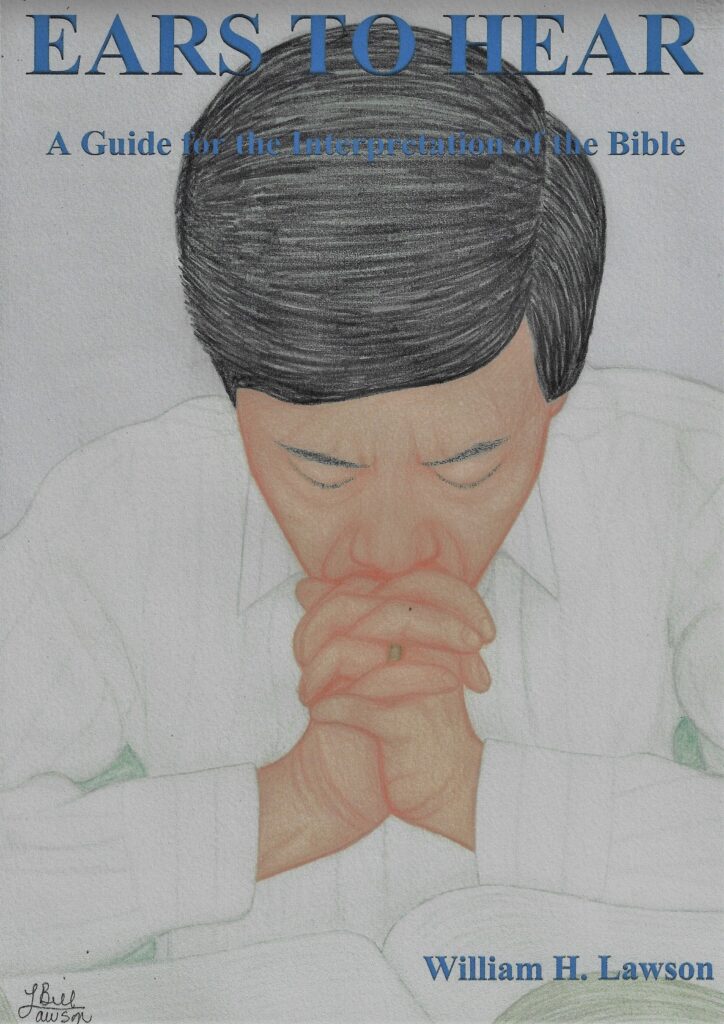Hear God Speak with Ears2Hear
About Ears2Hear
Christians often struggle to hear God speak through the Bible. The problem in part is that sound principles and methods for interpreting the Bible are not known or practiced. Instead, everyone does what is right in their own eyes. My name is Bill Lawson, and I have established Ears2Hear to provide guidance for Christians as they seek to hear God speak through the Bible. I have dedicated my life to interpreting the Bible and Ears2Hear contains the results of a lifetime of seeking to hear God speak. At the heart of Ears2Hear is my book on Biblical Interpretation–Ears to Hear: A Guide for the Interpretation of the Bible. In addition, Ears2Hear contains my interpretations of a variety of books in the Old and New Testaments. These interpretations are not traditional commentaries but my attempt to hear God speak. In addition I include tools for Interpretation that I have developed over the years. All of these resources are available free in Word documents on Ears2Hear. Ears2Hear also contains links to eBook publishers where these resources are also available for free. It is my hope and prayer that you will hear God speak more clearly with Ears2Hear.
About the Author
I am a proud graduate of California Baptist University (BA), Golden Gate Baptist Theological Seminary (MDiv), and the Southern Baptist Theological Seminary (PhD). I taught briefly at SBTS and then served with the International Mission Board of the Southern Baptist Convention and taught in Baptist seminaries throughout Asia for over 30 years. I have been married to Marsha Lawson for over 50 years and we have three children and ten grandchildren. I am now retired and living with my wife at The End of the Lane where I continue to write books as well as paint/draw pictures.

Ears To Hear: A Guide for the Interpretation of the Bible

Ears to Hear is an introductory guide to biblical interpretation. Unit one provides some guidance for preparing to do biblical interpretation. This unit explores regeneration and interpretation, essential attitudes for interpretation, background knowledge for interpretation, reference tools for interpretation, Bible translations and study Bibles, a balanced approach to interpretation, and sound methodologies for interpretation. Units two through four introduce methods for studying the Bible and determining its message. These units introduce methodologies for studying a book, a passage, and the details of a passage. Unit five introduces a method for applying the message of the Bible to contemporary situations. Unit six introduces a method for preparing expository sermons and Bible studies.